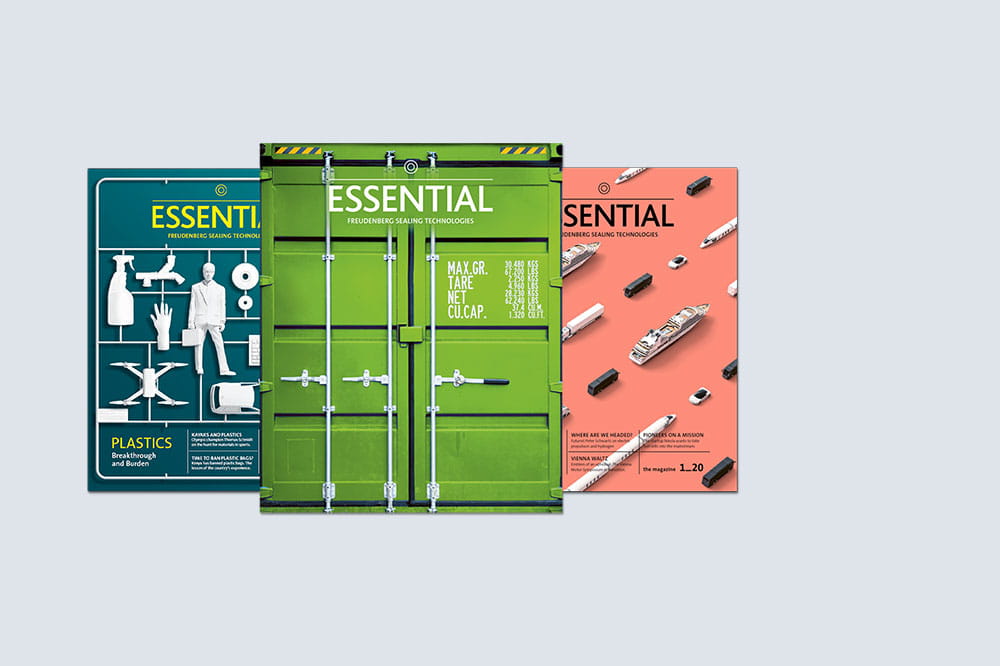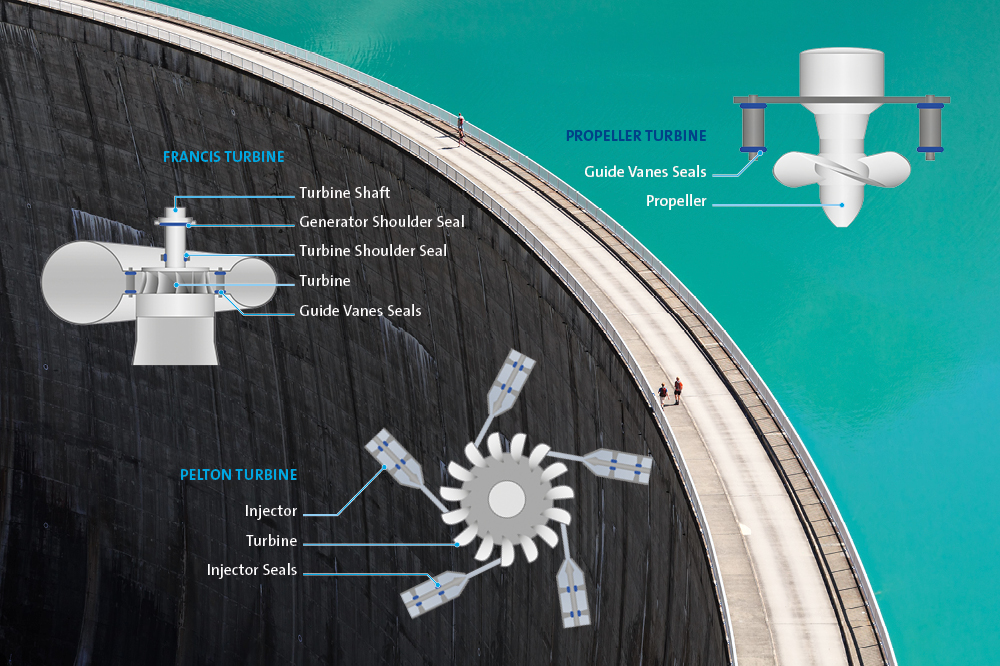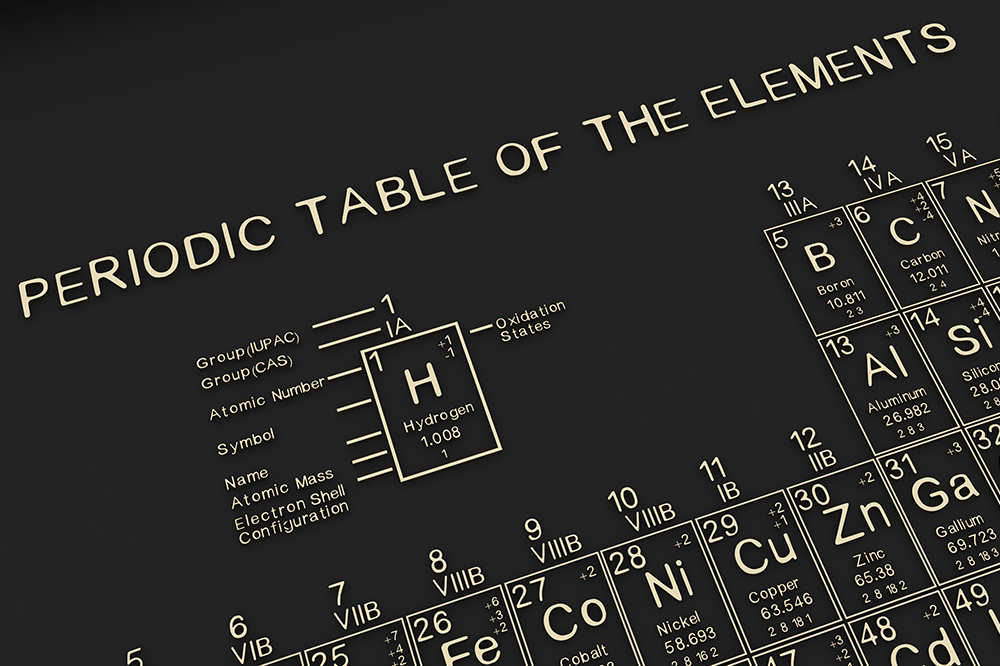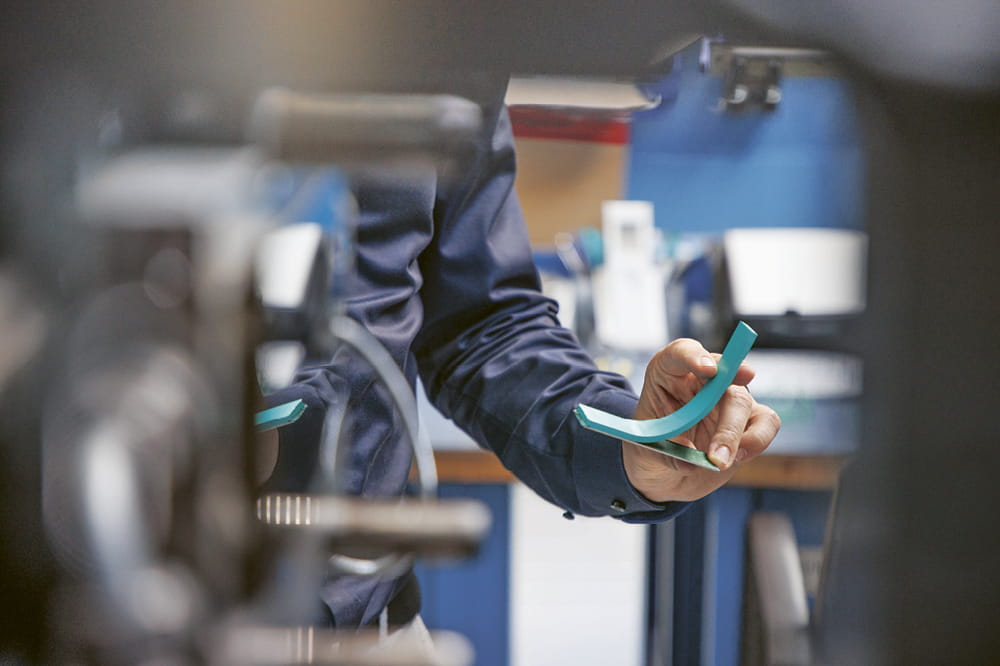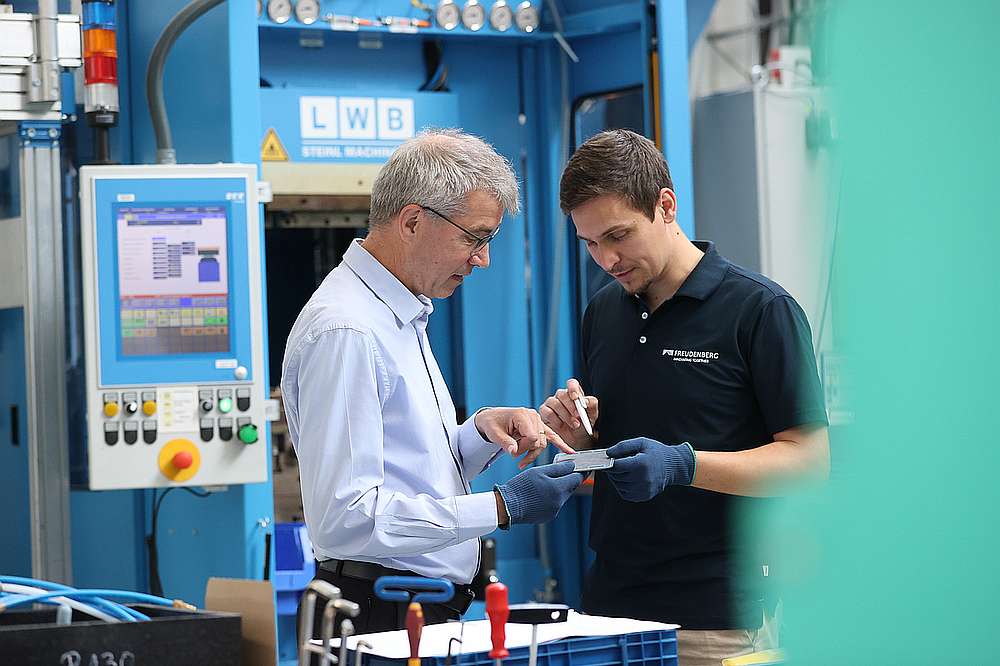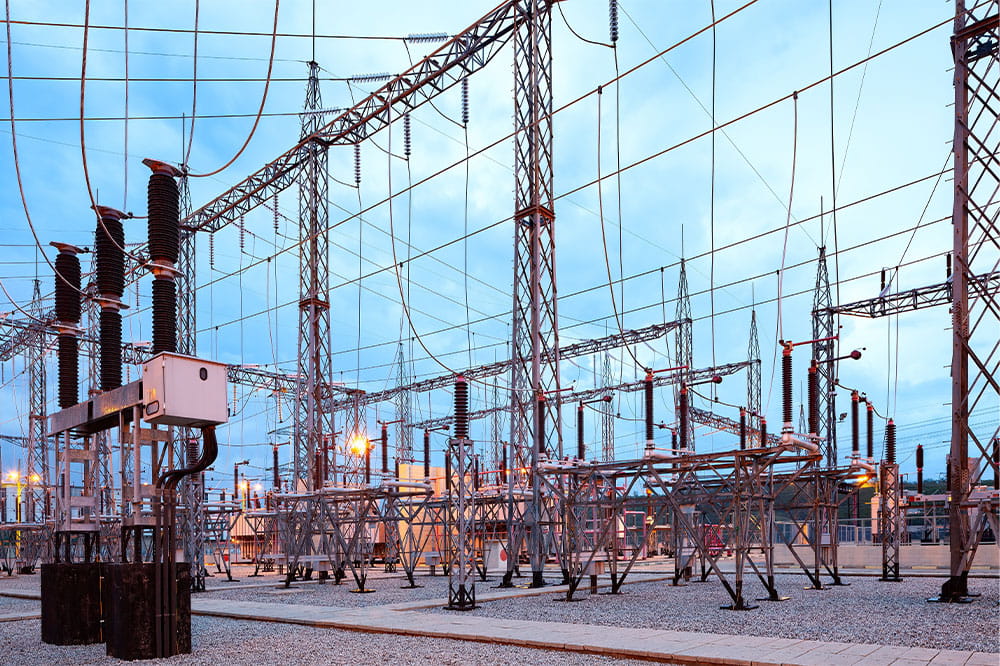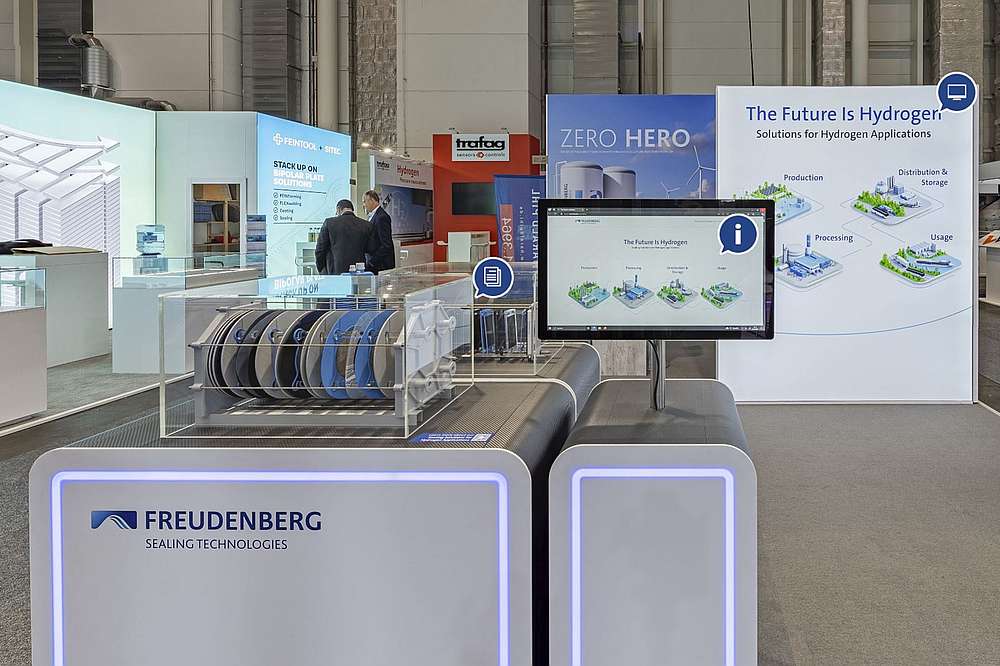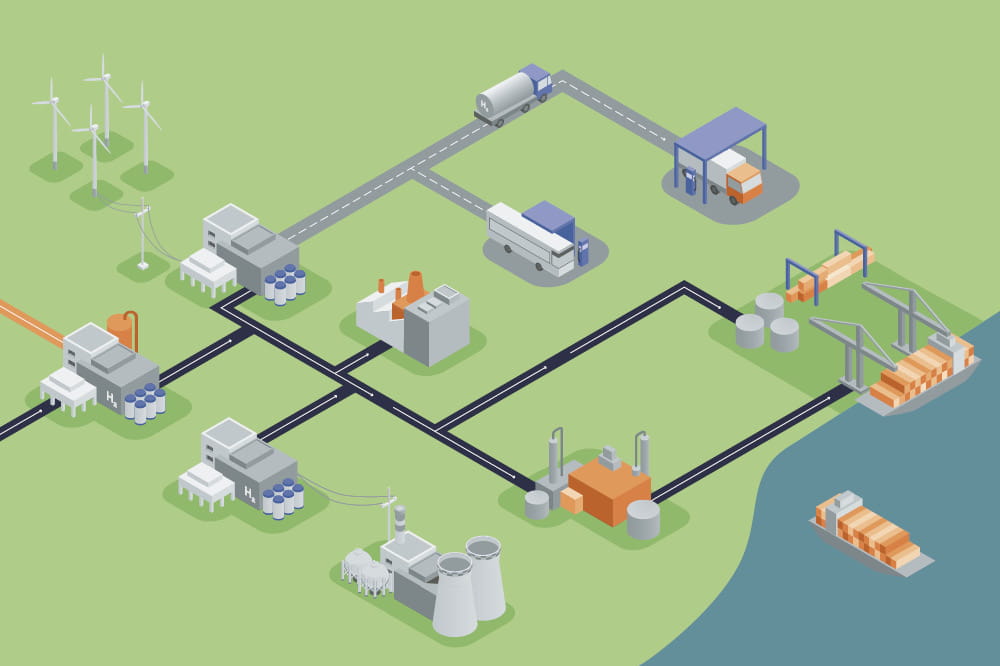Obtain news and background information about sealing technology, get in touch with innovative products – subscribe to the free e-mail newsletter.

10.11.2020 | Story
Globalization - Where Are We Headed?
Globalization at a crossroads: 2020 is revealing how fully we are all networked globally – and how fragile supply chains can be. Is this the end of globalization? Or an evolution towards something new? Where are we headed? This edition deals with the nature of globalization, its opportunities and its multilayered aspects.
This year, globalization has moved to center stage again and ignited a debate over where it is heading – and perhaps where people are steering it. It’s not easy to come up with an answer. It is worthwhile to take a look at the reality behind the term. Back in the 1980s, hardly anyone was using it. Its use only became more common in the early 1990s. But does that mean globalization has only been around for three decades?
In the mid-1970s, observers saw companies opening plants in other countries in a big way for the first time. The motives were largely different from those today. For many companies, they related to market access and resources – the issues today are often lower production costs and wages. Incidentally, Freudenberg set its sights on Japan in 1960 and began a close partnership with Tokyo-based Nippon Oil Seal Industry Company (NOK). At the time, Freudenberg was more interested in developing markets and new technologies than in cost-cutting. During this period, we also built up and expanded our manufacturing structures in Brazil. Our efforts mainly related to supply chains, even if we didn’t call them that at the time. The company wanted to become less dependent on often unreliable long-distance sea transport. By the way, you could set a date for globalization even earlier: for example, at the end of World War II when American products and mass culture began their triumphant march around the world. Or even back in the 19th century when the steamship, refrigeration and the telegraph created completely new opportunities for international trade. Or consider that Europeans were energetically pursuing ways to trade directly with China and India 500 years ago. Doesn’t that push the basic notion of globalization back even further? Not to understate the flourishing world trade that already existed in Asia at the time. The Europeans definitely wanted a share of that commerce.
Globalization is an opportunity. It transports individuals and entire societies into a better future.
Claus Möhlenkamp, Chief Executive Officer, Freudenberg Sealing Technologies
People haven’t just started to recognize the mutual dependencies and connections that exist across continents. We aren’t creating networks around the world just because advances like the airplane and the Internet are making them possible. We are building networks because we obviously see mutual advantages in international trade and exchanges.
Knowledge-sharing and economic exchanges around the world relate to value creation, raw materials and competencies. The trends took on a new dynamic when the term “globalization,” as already mentioned, was coined during the 1990s. One example can be seen in the European economic zone; other measures such as the dismantling of customs barriers contributed to the phenomenon. A growing number of bilateral and multilateral organizations emerged – as did the desire for agreed-upon standards to enable an even more straightforward exchange of goods and services.
Is the wheel of Globalization spinning backward, or is it gaining momentum?
As a result, industrial standards have become widespread. So have environmental standards and, much more importantly, the benchmarks for occupational safety and the organization of work. The process cannot be reversed either. But why is that? The way that politicians, business people and especially scientists and other researchers – after some early difficulties – responded collectively to the pandemic, shared information and launched joint research projects provides just one more illustration of what is possible today through cooperation and networks. Globalization is an opportunity. It takes individuals and entire societies along a path to a better future. We have largely lived in peace in Europe since the end of World War II, a period of 75 years, and globalization has made a contribution to this. It creates transparency for progress and innovation. It facilitates communication. It has the potential to manage conflicts and find solutions to problems that have no boundaries. This applies equally well to combatting a virus and to the fight against climate change.
Still, peace, prosperity and growth cannot be taken for granted in our global, networked world. Individuals, societies and companies have to exert their influence and actively shape the changes. It is a positive sign that growing numbers of people have access to education, healthcare and a role in their economies. Yet negative developments need to be corrected. We have to find a new balance between social, ecological and economic progress. This will only succeed with a large, networked community of nations. The past has shown that economic progress and new technologies have created more jobs than they have eliminated. The printing press, the power loom, the assembly line and the computer – all of these technological advances have ultimately promoted the well-being of humanity.
ESSENTIAL – the Magazine
Don’t Miss a Trend
Smart sealing solutions for nearly every sector, technology trends and exclusive interviews – Find them in our company magazine ESSENTIAL with a print subscription and digitally.
More news on the subject Sustainability

Join Us!
Experience Freudenberg Sealing Technologies, its products and service offerings in text and videos, network with colleagues and stakeholders, and make valuable business contacts.
Connect on LinkedIn! open_in_new

